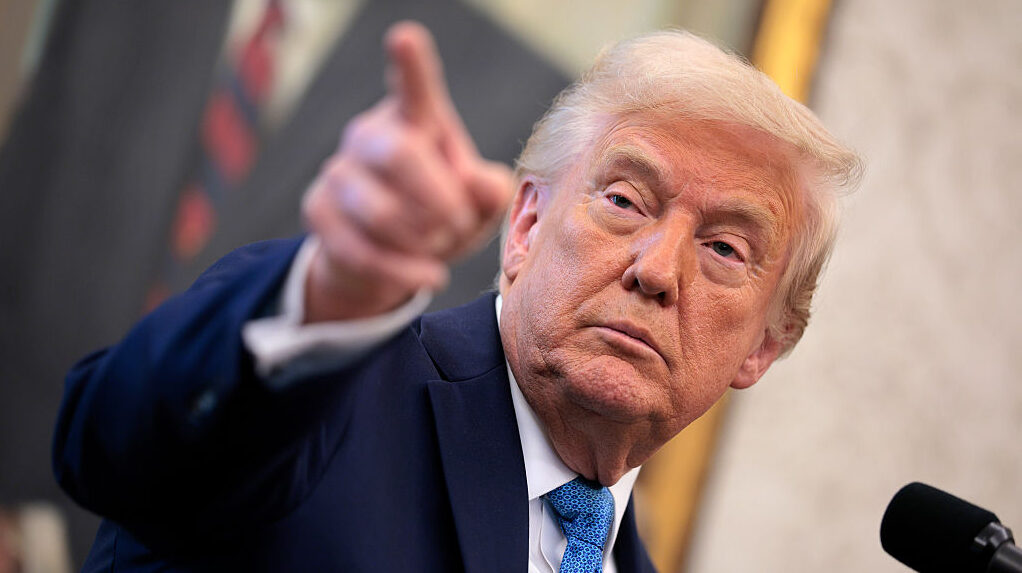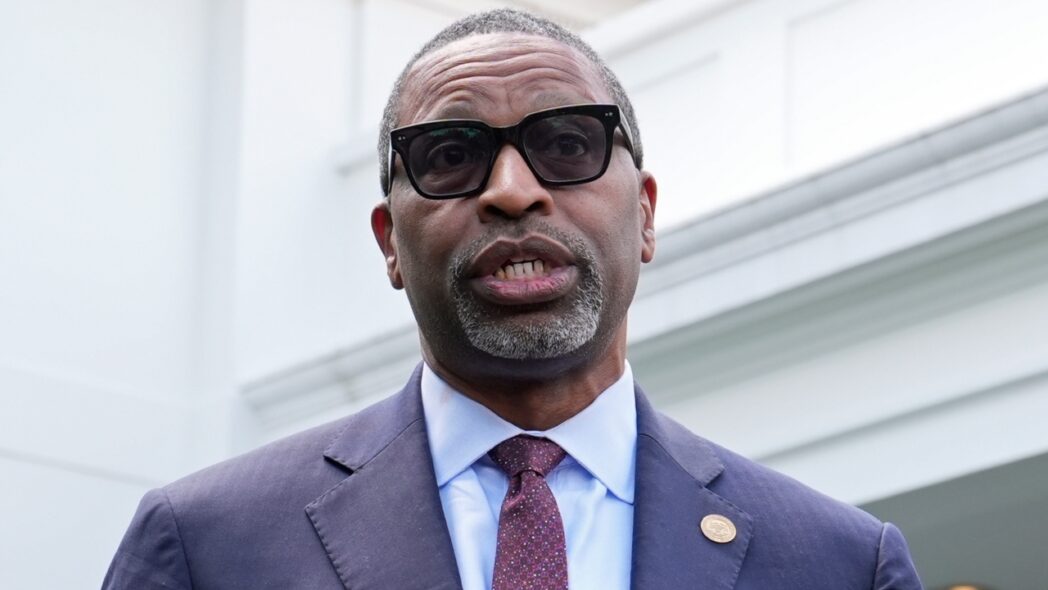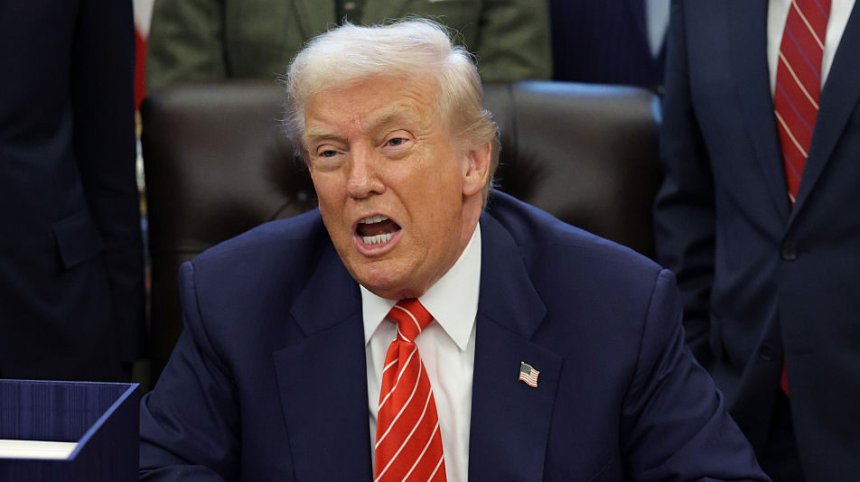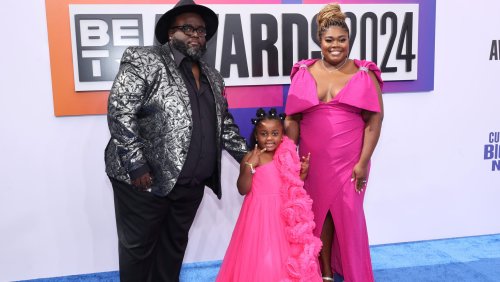Black Americans have suffered the most during Trump’s first 100 days in office, say critics
The actions of the Trump administration will result in “disastrous and disparate impact on African Americans,” warned NAACP President Derrick […]

The actions of the Trump administration will result in “disastrous and disparate impact on African Americans,” warned NAACP President Derrick Johnson.
Amid the controversy, constitutional clashes, and complete bucking of norms that have marked President Donald Trump‘s first 100 days in office, Black Americans are among those most impacted, critics tell theGrio, evidenced by Trump’s dizzying executive orders and actions to upend the federal government’s role in protecting communities of color.
On his first day back in the White House on Jan. 20, Trump signed an executive order ending diversity, equity, and inclusion (DEI) programs — which his administration calls “illegal and immoral discrimination” — throughout the federal government. Another order calling for “merit-based opportunity” urges private institutions to follow suit. The Trump White House’s crusade against DEI has resulted in Black federal workers disproportionately being fired or laid off from their jobs.
The administration has also eliminated or defanged offices and programs intended to address historical inequities impacting Black and Brown communities, from the Office of Civil Rights within the Environmental Protection Agency, which was tasked with addressing environmental injustices related to air and water quality in communities of color, to the Minority Business Development Agency, which provided capital and other resources to Black and minority-owned businesses.
“Black Americans are definitely suffering the weight of the first 100 days…because of some of the places that got hit the hardest, whether it was the Department of Education or the Department of Health and Human Services,” said Democratic strategist Ameshia Cross. She told theGrio, “These are typically agencies that housed, percentage-wise, more Black Americans.”
Cross said Black Americans also stand to grow sicker as his administration has become increasingly hostile toward public health interventions like vaccines and medical research, led by anti-vaccine Health and Human Services Secretary Robert F. Kennedy Jr.
“Black people are going to bear the brunt of a lot of the sicknesses and illnesses, in addition to getting rid of very necessary research on things like various cancers that affect Black people at younger ages,” she explained. “When you get rid of that research and that research funding, you are essentially destroying a lifeline for individuals who are more at risk for certain diseases and certain illnesses.” 
Cross noted that there has also been a “downstream effect” to President Trump’s cuts in the name of DEI, noting that it pushed many K-12 schools, colleges and universities, and businesses to “reduce” diversity efforts, particularly in hiring. She said Trump’s anti-DEI agenda has “reverberated” throughout the country, resulting in the “demonizing” of Black and brown people and false narratives that they are “talentless” or “lack ability.”
“These are things that we know are false, but these are narratives that are carrying across the country in ways that we have not seen for generations,” said Cross. “[Trump] is bringing it back, and I think that for Black people, specifically, this is going to be really difficult.”
Many of Trump’s actions related to DEI and other civil rights violations are being challenged in federal courts. The nation’s oldest civil rights organization, the NAACP, is a plaintiff in three lawsuits against the Trump administration. One seeks to halt the Department of Education from withholding funding from schools that do not comply with Trump’s order to eliminate DEI policies.
Others include efforts to challenge an executive order on voting rights and the administration’s attempt to shut down the Consumer Financial Protection Bureau, which protects consumers in the financial markets from banking services to debt collection.
NAACP President Derrick Johnson told theGrio that while the Trump administration’s actions may be harmful to Black and brown communities, they are also meant to “distract” the public and “distort the message.” The larger objective is “redefining the role of government,” said Johnson.
“Their goal is to change the budget so that Medicaid will keep the elderly out of senior citizen homes. It will deny veterans’ benefits. It would completely undermine the Social Security system and all the entitlement programs that this nation has grown accustomed to,” said the civil rights leader.
“That’s not a Black issue or white issue, that is a issue that taxpayers across this country paid for, and what this administration is seeking to do is to enrich his friends, destabilize all the infrastructure, the safety net that has been built since 1932 and create a system where he becomes the king.” 
Democrats and civil rights leaders warned voters during the 2024 presidential election cycle that, if elected back to the White House, Trump would seek to transform the government and threaten the nation’s standing as a democracy and move it closer toward an autocracy, where he is the sole arbiter and decision maker.
Trump’s time in office has also resulted in economic uncertainty and a slump in the stock markets, causing the president to temporarily pause his plan for global tariff increases. Trump and the Republican Party’s plan to extend tax cuts for wealthy individuals, in addition to its proposed cuts to critical safety net programs, could further complicate the health of America’s economy.
“It will have a disastrous and disparate impact on African Americans,” said Johnson, who noted that tariff increases on Canada, China, and Mexico will ultimately result in higher cost of living, including housing, groceries, and other goods and services.
Jamarr Brown, executive director at Color of Change PAC, the political arm of the social justice organization of the same name, told theGrio, “It’s no surprise that Americans are responding with strong disapproval” of Trump’s first 100 days. A recent poll conducted by ABC News/Washington Post/Ipsos found that Trump now has the lowest 100-day job approval rating of any president in the past 80 years.
“His policies are not only targeting Black communities, they are hurting working families, students, and everyday people across this country,” said Brown. “Every action Trump takes makes it even more urgent that we organize, build power, and fight to preserve our fundamental freedoms.”
Advocates are calling for Democratic lawmakers in Congress to use their offices to continue to educate and inform the public about the dire consequences of Trump’s actions, which have largely bypassed the powers of Congress and exerted constitutionally questionable executive powers.
Johnson, the NAACP president, said that while his organization and others are “fighting back with the tools that we have,” his deeply concerned by Trump’s “erosion” of congressional powers.
“We encourage congressional leaders to push back to take the conversation to citizens across the country so they can understand what is taking place and who’s responsible,” he told theGrio.
Brown of Color of Change PAC said the first 100 days of President Trump’s second term have made clear that “threats to civil rights, democracy, and Black communities are not just continuing, they’re accelerating.”
He added, “We are fighting at the state and local levels to protect our communities against these federal attacks, mobilizing voters, uplifting leaders, and ensuring that Black communities have the power needed to defend and advance our rights.”
Share
What's Your Reaction?
 Like
0
Like
0
 Dislike
0
Dislike
0
 Love
0
Love
0
 Funny
0
Funny
0
 Angry
0
Angry
0
 Sad
0
Sad
0
 Wow
0
Wow
0

















